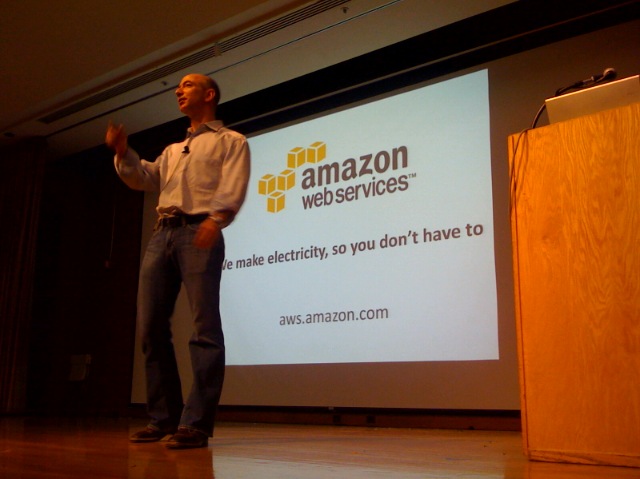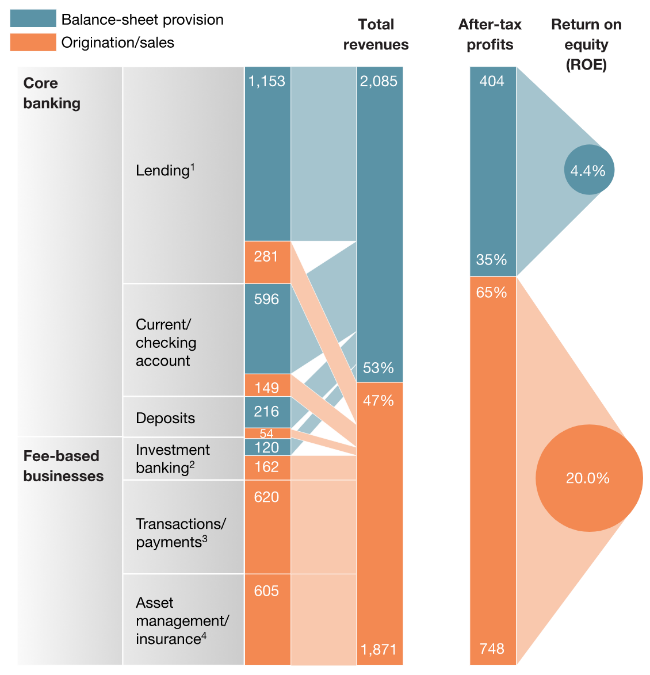Now Wall Street: How Amazon, Alibaba, and Rakuten Will Change the Sphere of Finance (McKinsey Report)

Image: Nate , CC BY-NC 2.0
The next big area that will change significantly under the influence of technology companies is finance. This conclusion is contained in the 52-page report of analysts at McKinsey . We present to your attention the main points of this document.
What do analysts predict
According to the report, the total profitability of companies in the financial industry by 2025 could reach 9.3% while maintaining current market conditions. However, experts are not sure that such a preservation is possible - if users switch to the financial products of digital companies, then the overall profitability of the traditional financial business by the same 2025 will grow by only 5.2%.

Two scenarios for the development of the financial industry by McKinsey
In this case, “digital companies” are by no means new fintech startups. On the contrary, analysts are convinced that technology giants like Amazon, Alibaba, Tencent and Rakuten will change everything.
Platform companies
The prospects for technology giants are determined by the fact that they provide users with large-scale integrated platforms. This allows you to build extremely strong ties with customers. The essence of this approach in the report is explained on the example of one of the largest online marketplace in Asia Rakuten:
- The loyalty program of the service involves the accrual of points to users or internal money that can be used to make purchases.
- Company users can also issue credit cards for shopping.
- The company produces financial products and services from mortgages to brokerage services.
- She owns one of the largest travel portals in Japan.
- And also - the Viber messenger, which is used by approximately 800 million people in the world.
And this picture is observed not only in Asia - in the United States, Amazon has long been a favorite millennial application, and 73% of them would prefer using financial services from Google, Amazon or PayPal to interact with their usual bank.
What does this mean for financial companies
According to McKinsey analysts, the nuclear business of banks is the issuance of loans, deposits, etc. - Generates 53% of the industry’s total revenue, with a profit of 35% and an ROE of 4.4%. In turn, the "distribution" of these services brought 47% of revenue and 65% of profit with ROE at 20%. And it is this piece of cake that technology companies that have long learned to distribute and package services can take away from financiers.

What will all this lead to?
Under pressure from technology companies that have accustomed users to convenience and a high level of service, financial market players are also forced to take this path. If a few years ago it was scary to look at the sites and applications of any bank, today users can use convenient applications, various calculators of payments on mortgages and interest on deposits, which until recently were not there.
In addition, McKinsey analysts suggest that in the future, some financial institutions will prefer to become partners of platform companies in order to do only basic services themselves, and transfer distribution issues to those who are better versed in this.
“Today, many banks are considering this opportunity. The main problem here is pricing. If banks cease to interact directly with the user [giving it to the conditional Amazon], will they be able to set high enough prices for their services to make money anyway? And in many cases, the answer is yes. ”
